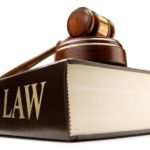
Article 7- All are equal before the law and are entitled without any discrimination to equal protection of the law. All are entitled to equal protection against any discrimination in violation of this Declaration and against any incitement to such discrimination.
PHILIPPINES// On equality before the law amidst the pandemic
Dodong (not his real name) is a 58-year old fish vendor residing in Caloocan City, Philippines. As a husband and father, he has the moral duty and obligation to feed and provide for his family’s basic needs. Sometime in May 2020, he went to a market in the nearby city of Navotas to get fish to sell. Both cities are within the greater Manila metropolitan area, which has been under an Enhanced Community Quarantine (ECQ) due to the Covid-19 pandemic. The ECQ requires a person to possess a quarantine pass to be allowed by authorities to leave household premises. Dodong was apprehended by the police for not having a quarantine pass and was imprisoned for 12 days, although the legally-mandated penalty was only ten days imprisonment. He was able to post bail through the efforts of some private individuals and civil society groups.
In the same month, Mr. Y, a high-ranking police general, was serenaded by colleagues in a birthday celebration attended by a number of people despite a ban on mass gatherings. MR. Y and at least 18 other high-ranking officials could be seen in pictures of the gathering wearing no face masks and observing no physical distancing, While a case was filed against them by the Philippine National Police (PNP) Internal Service, Philippine president Rodrigo Duterte made public pronouncements that he will not transfer Mr. Y anywhere else because he “needs” him in the service, citing that Mr. Y is a “good” and “honest” police officer, and that Mr. Y will stay in office “until further announcements.”
These two faces of ECQ protocol violations portray a clear picture of discrimination before the law – a culture of impunity that erodes the principle of rule of law. The Philippines is a democratic and republican state having a unitary, presidential and centralized form of government. Composed of eighteen (18) articles, the 1987 Constitution of the country provides for the fundamental freedoms and liberties of its people. These fundamental freedoms and liberties are so essential that their realization is congruent to the preservation of human dignity and worth of the people. For one to fully achieve and savour the essence of true democracy, the agencies of the state – its government institutions – must live with the principle of the rule of law and the tenets of accountability and integrity.
This piece forwards two main arguments on why equal treatment under the law must be observed by the Philippine government especially in these difficult times of the pandemic.
First, the prime duty of the state is to serve and protect its people. The state and its agencies exist to secure the general welfare – not only the welfare of a selected few. During this pandemic, everyone is vulnerable; thus, everyone needs protection and social assistance. Legally, state protection is provided through laws, and proper implementation of the latter is vital to realize the former. Local government units (LGUs) are are supposed to implement these laws from provincial down to the barangay (village) level.
The differences in LGU implementation of national laws/orders always create dilemmas in treating people equally under the law. For example, in some cities people caught staying outside their homes during curfew hours were brought to plazas or gymnasiums and were given kind reprimands while others were bullied and made fun of by police officers. In some areas, authorities made sure that people observed physical distancing while, in others, security officials ignored ECQ protocols being violated right before their eyes. This inconsistency fuels distrust and disobedience from the people, thus bringing more harm than it provides protection.
Lastly, the end does not always justify the means. Though the world was surprised by the pandemic, the value of human dignity cannot just be sacrificed. The life of the commons is never less than that of the high-ranked officials. They deserve equal treatment, thus equal protection.
If the government believes in the tenets of democracy, then it should not devalue the lives of the vulnerable for the sake of its own interest. Democracy ought to empower people. Democracy ought to free people from bondage. The government as an organ of democracy must utilize and mobilize its available resources in order to provide access for all.
Dodong may have been freed, but the honest reality of unequal treatment and discrimination amidst this pandemic continues to write its own history.
